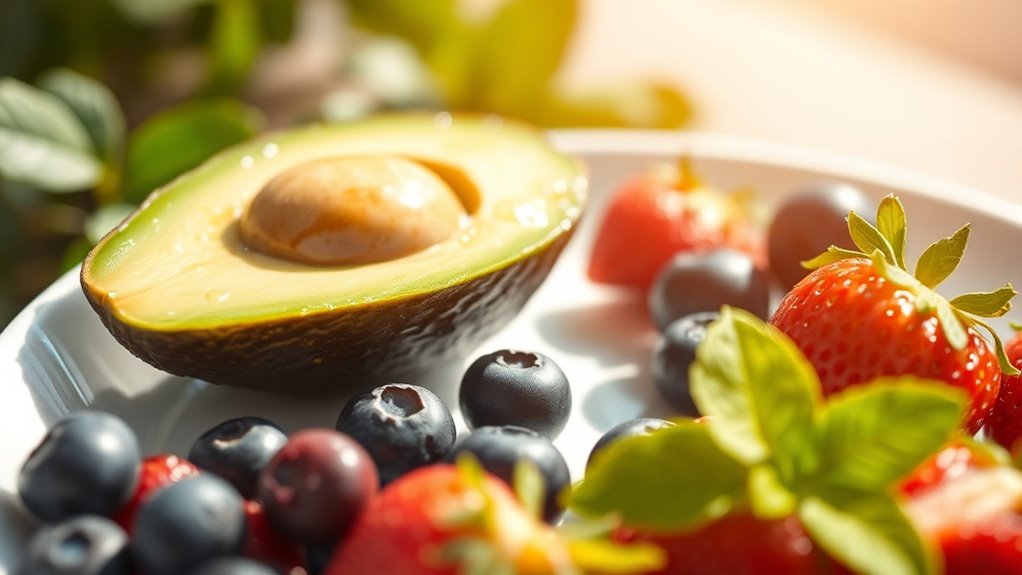The Diet Trick to Softer Skin and Fewer Wrinkles
You might recall the age-old adage about beauty being skin deep, but recent findings reveal that your diet plays a crucial role in maintaining youthful skin. By incorporating specific nutrients, you can support collagen production and combat wrinkles. Curious about which foods to prioritize and which to avoid? Understanding the dietary components can transform your skin’s health effectively.
Essential Nutrients for Skin Health
What’re the key nutrients that can transform your skin’s health?
A diet for wrinkles emphasizes antioxidants like vitamins C and E, which combat free radicals.
Omega-3 fatty acids support cellular health and reduce inflammation.
Also, zinc promotes healing and collagen production. Additionally, incorporating antioxidant-rich foods into your daily meals can significantly enhance your skin’s appearance, maintaining its elasticity and youthfulness.
Hydration and Its Role in Skin Elasticity
While nourishing your body with essential nutrients plays a significant role in skin health, hydration is equally vital for maintaining skin elasticity.
Adequate hydration helps your skin retain moisture, reducing the appearance of fine lines.
To enhance your skin’s elasticity, consider these tips:
- Drink plenty of water daily.
- Include hydrating fruits and vegetables.
- Use moisturizing skincare products.
Additionally, incorporating water-rich foods like watermelon and cucumber can significantly boost your hydration efforts.
Anti-Aging Foods to Include in Your Diet
Incorporating anti-aging foods into your diet can significantly improve your skin’s appearance and overall health.
Focus on fruits like berries, which are rich in antioxidants, and leafy greens, packed with vitamins A, C, and E.
Include healthy fats from avocados and nuts to support skin hydration.
Omega-3 fatty acids found in fatty fish can also enhance skin elasticity and reduce inflammation. Additionally, leafy greens help combat oxidative stress, reducing signs of aging and promoting skin repair.
The Impact of Sugar and Processed Foods
Even with the presence of anti-aging foods in your diet, the impact of sugar and processed foods can dramatically undermine your efforts for healthier skin.
Consider the following effects:
-
Sugar contributes to glycation, damaging collagen and elastin.
-
Processed foods often contain unhealthy fats that promote inflammation.
-
High sodium levels can lead to water retention, puffiness, and skin dullness.
-
Your choices matter for skin health; opting for real nutrition over junk food improves skin’s appearance and health.
Tips for Creating a Skin-Friendly Meal Plan
How can you craft a meal plan that nurtures your skin? Focus on incorporating plenty of antioxidants, such as berries and leafy greens, while including healthy fats from avocados and nuts.
Opt for lean proteins like fish and legumes to support collagen production. Stay hydrated with water and herbal teas, minimizing processed foods and sugars that can contribute to skin aging and inflammation. Including foods rich in healthy fats can further enhance skin elasticity and hydration.

